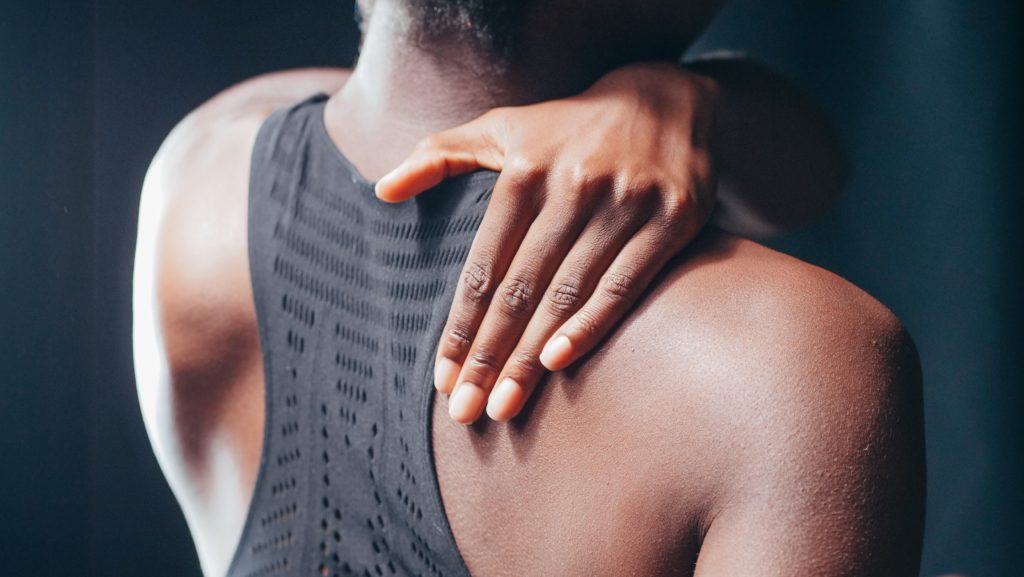Mentally Dealing with Injury Tips

Statistically speaking, if you are training to reach your highest potential and you are not a genetic abnormality, then you will inevitably become a member of the injured athlete club. It’s a club like no other usually with somber music playing and athletic dreams being pushed into a dark corner. Membership is usually paid through some type of sprain, strain, fracture, or tendonitis. Morale is typically low, to say the least. That’s the thing about injuries, they don’t just affect your body: they impact your mind. The psychological and emotional components of injury can often be worse than the physical injury itself. It’s common when injured to experience frustration, anxiety, depression, doubt, fear, loneliness, or a loss of identity. It is okay to feel your feelings and to be sad but I would challenge you that staying in that darkness isn’t the most helpful thing you could be doing for your recovery or mental health. In fact, numerous studies have shown that incorporating psychological concepts with physical therapy allows for a faster and more positive recovery. So, feel all the feelings for a bit then try some of the suggestions below.
Mentally Dealing with Injury Tips
- Find Support and Set Boundaries – Injuries are a type of loss, combine that with a disruption in your daily routine and it’s not surprising that most people feel “off.” Try not to isolate yourself with the difficult feelings but reach out to those that love you unconditionally and can offer a place to vent or encouragement. Also, know that it is okay to need to step away from training groups and/or limit the amount of conversation you have about training or racing if you find that it is negatively impacting your mental health.
- Reframe Injury as Opportunity – Reframing injury as an opportunity to learn, grow, and become a better athlete allows you to experience a sense of hope and control. Know that injury is part of the journey to your highest potential if you choose to see it that way.
- Set Goals – Make a recovery plan! Athletes are some of the best goal-setters I know when it comes to training and racing but can struggle with goal setting in the recovery process due to the uncertainty of when their bodies will heal. Consider setting goals for physical therapy and cross-training. Goals can help you feel more involved in the injury recovery process and help you to stay present. Also, consider setting non-sport-specific goals. In college when I was injured, I made it a goal to bake a new cupcake recipe every Friday. Focusing on something non-running-related was fun and allowed me to gain a new skill set.
- Find Joy – Instead of focusing on the things that are not going right choose gratitude for the things that are. Celebrate cross-training, walking without pain, crying less about the missed race, getting extra sleep. Joy and gratitude will help you feel less miserable about your situation and create a positive mindset that can help speed recovery.
- Talk About Fear – Fear is often behind some of our strongest emotions when injured. Fear that we failed, we’ll never get back to where we are, that we are losing time. Fear is normal. It’s important to talk with others about fear because fear can hold you back and create a cloud of self-limiting doubt. Fear loses its power when it is brought into the light.
- Invest in the Mental Game – Even when you can’t train physically the way you would like you can still train mentally! This is a great time to focus on developing your mental game. Practice imagery and visualization where you see your body healing itself and performing unencumbered. Other skills you could work on include developing mantras or reframing negative thoughts. If you find your mental and emotional health negatively impacting your daily life and are unable to manage it on your own then this could be a good time to invest in counseling. Investing in the mental and emotional components of both sport and life during this time can help you return to being a more well-rounded athlete.
- Embrace Other Parts of Yourself – Injuries provide the gut-check of seeing just how much of our self-worth has gotten wrapped up in our sport. While investing in training and racing isn’t inherently bad, it does come with sacrifices in other areas of our lives. Now is a great time to turn some attention to those other areas. Maybe it is staying out late at a wedding or practicing a new hobby.
Injuries can be one of the hardest parts of being an athlete. Try to remember that injury is a part of the journey and that if looked at as an opportunity, can be a building block for some of your greatest accomplishments. Setbacks help to build resilience and create the resistance that makes the mountain top experiences even sweeter. These are a few tips for mentally dealing with injury and I hope they help you progress during those times of injury.

Haleigh Fisher is a Licensed Professional Counselor working with athletes to help them train and live happy by helping them develop mental skills and embrace their strengths. She is a former Division I cross country athlete turned trail runner and uses her experience as a competitive athlete and mental health clinician to connect with clients and help them unlock their potential. Haleigh describes herself as a joy seeker, a trail running adventurer, a celebrator of food, an artist, and a lover of people; thrift shopping; and cupcakes.









